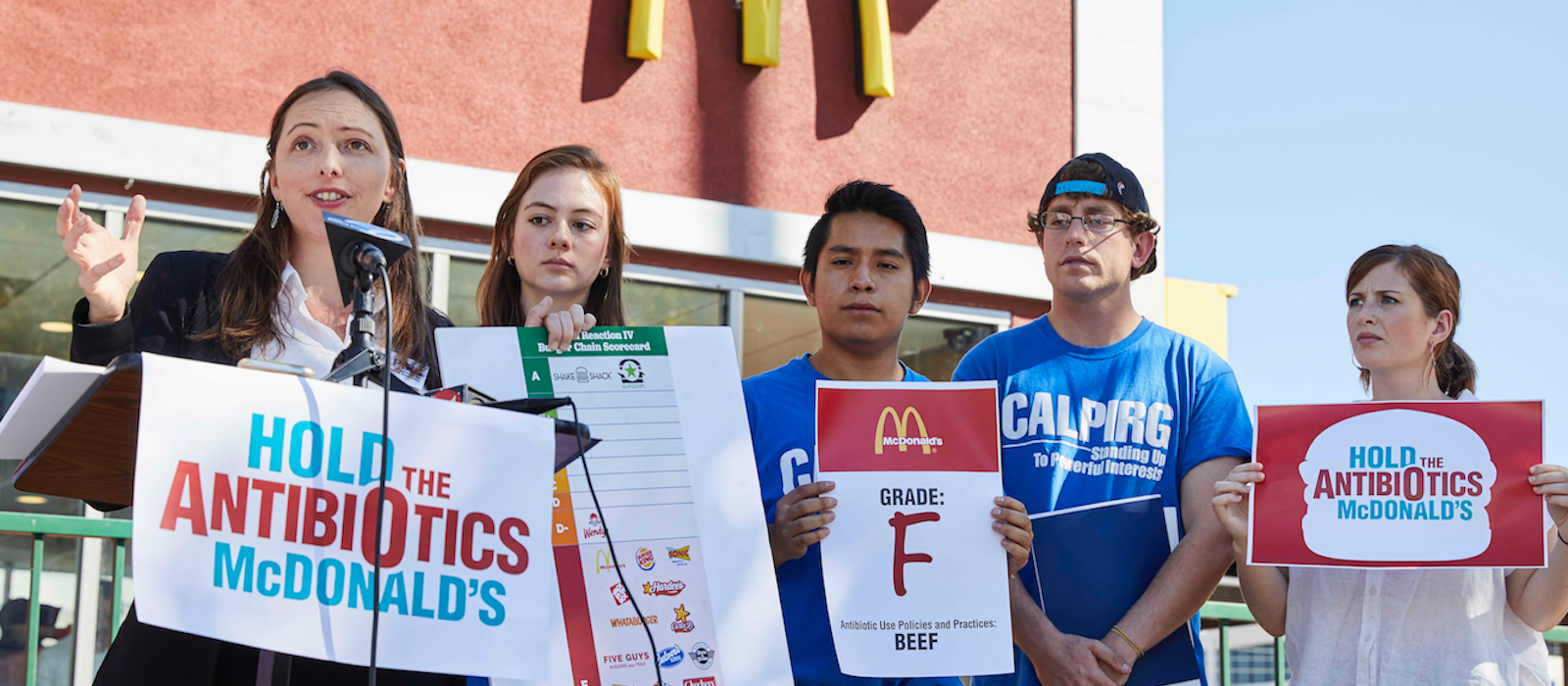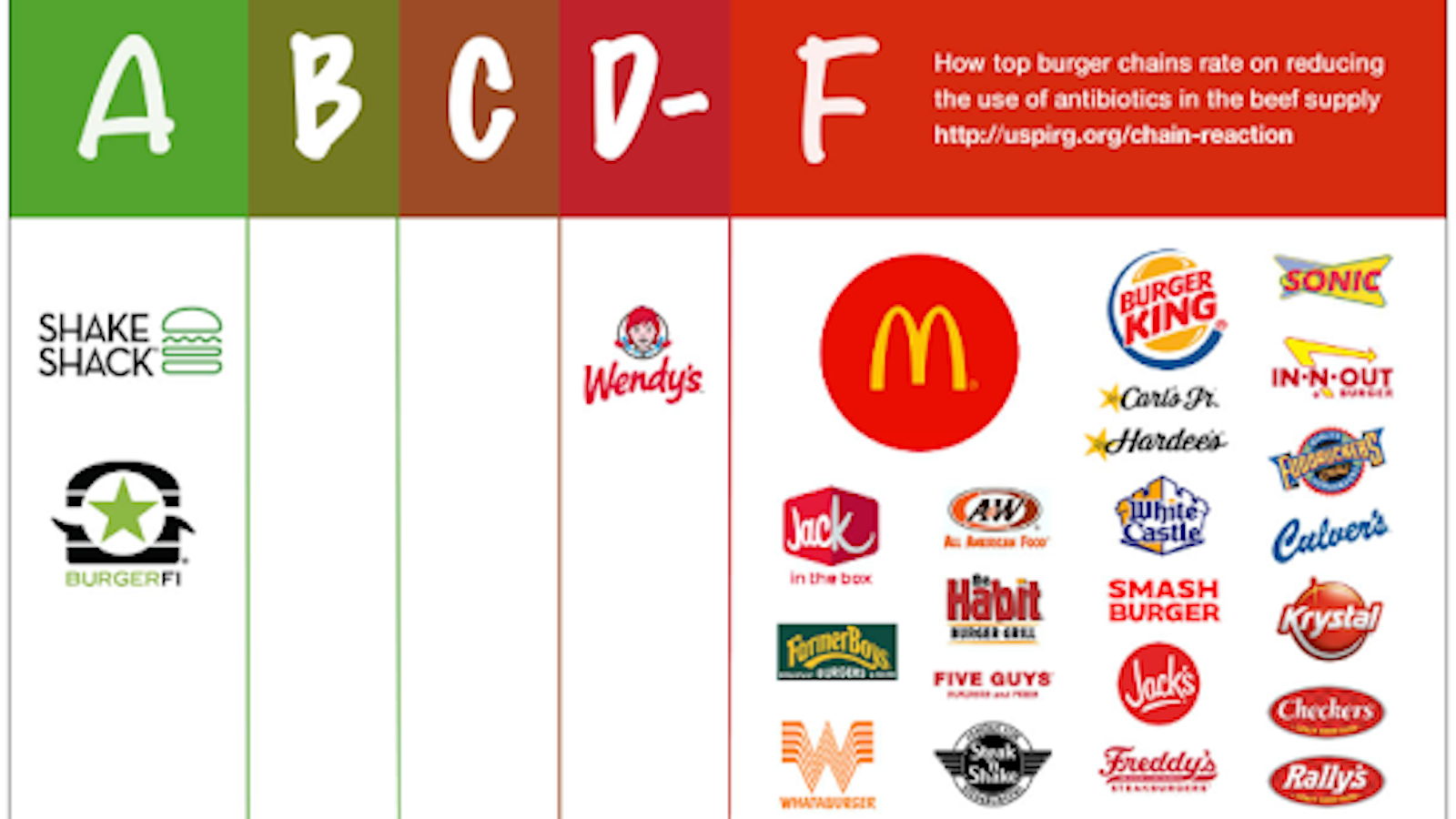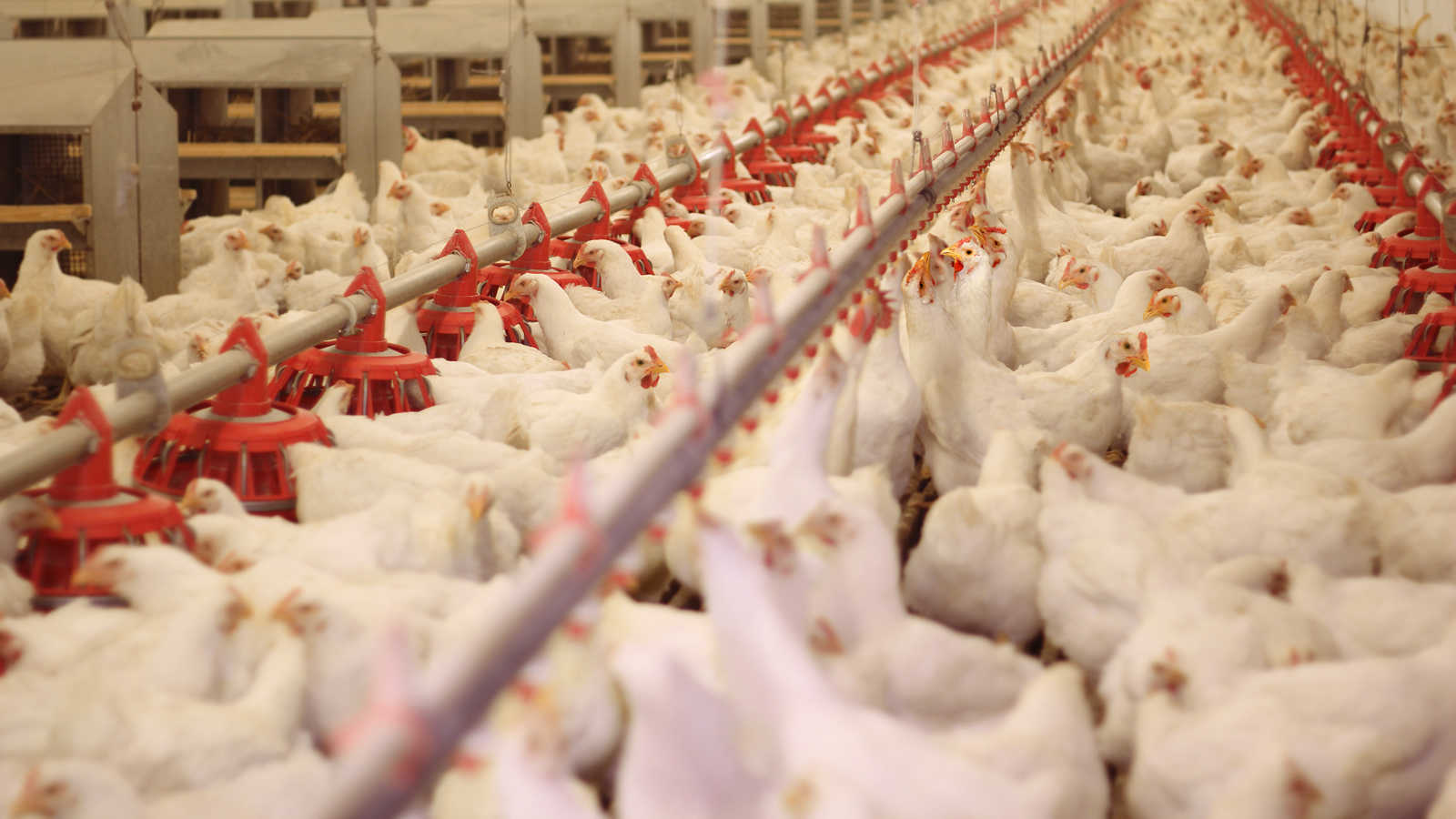
McDonald’s And 21 Other Burger Chains Are Failing On Antibiotics, But Its Action Could Spark A Chain Reaction
Major burger chains have the power to help avert a public health crisis, but too many are not using it.

U.S. PIRG Education Fund’s Healthy Living team recently released the fourth annual “Chain Reaction” report card, finding that most of the 25 largest burger chains are not doing nearly enough to stem the rise in antibiotic-resistant bacteria—an increase linked to the overuse of antibiotics in meat supply chains.
The report, released annually, graded the nation’s 25 biggest hamburger chain restaurants on their antibiotics policies.
Twenty-two chains, including McDonald’s, received an “F” for their antibiotics policies. Only Shake Shack and BurgerFi received an “A” for not using beef raised on the routine use of life-saving drugs. As an industry leader, McDonald’s has the power to make a difference. U.S. PIRG and our national network are calling on McDonald’s to use it.

Health experts have been sounding the alarm about the problem of antibiotic resistance, warning that we could be entering a “post-antibiotic” era when more ordinary infections become deadly.
According to the Centers for Disease Control and Prevention, at least 23,000 Americans die every year from antibiotic-resistant bacteria and millions more get sick—a health crisis fueled in part by the widespread overuse of antibiotics on industrial farms.
One solution is simple: Stop the routine use of human antibiotics in animal agriculture, where overuse is most blatant and carries the most risk. The FDA has the authority to do this. But even under President Obama, the agency was reluctant to act.
When U.S. PIRG launched its campaign in 2014, the advocacy team looked for other paths to progress. Together with NRDC and other allies, we found doctors, nurses and consumers willing to prod first McDonald’s, then Subway and then KFC into substantial action. Their agreement to act has changed what’s happening on the farm: Soon, nearly half of all chicken raised in the U.S. will be raised without the routine use of antibiotics.
Now we’re focusing on beef.
We don’t need to raise our food in ways that put public health at risk. That’s why U.S. PIRG and our national network have been calling on McDonald’s to seize the opportunity to commit to ending sales of all meat raised on the routine use of antibiotics in 2018. Thanks in part to our nationwide efforts, including going door-to-door in several states, the PIRGs in California and Maryland have helped win state laws restricting the routine use of antibiotics in agriculture.
Shareholder actions at other restaurant chains are showing signs of progress. In late September, thanks in part to the work of Green Century Capital Management, 40 percent of shareholders in Darden Restaurants, the parent company of some of the world’s best-known restaurants (such as Olive Garden), sent the company a message: It’s time to get serious about stopping the overuse of medically important antibiotics in its meat supply chain. That’s hard to ignore.
We know that with enough support, the right research and tough-minded advocacy, we can change the landscape of American food for the better, and preserve our life-saving medicines in the process.
Topics
Find Out More


One step forward, two steps back on overuse of antibiotics in meat production

Colorado farmers win the Right to Repair their tractors

